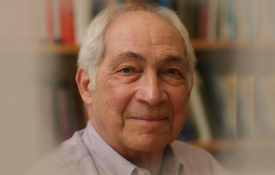-
People Have Very Different Understandings of Even the Simplest Words
In 2017Kris De Meyer, a neuroscientist who directs the Climate Action Unit at University College London, ran the opening session of a conference on decision-making under uncertainty for an audience of scientists, finance professionals and policy makers. Visit Page
-
Bilingualism Is Reworking This Language’s Rainbow
Like the ancient Greek of Homer’s time, the Tsimane’ language has no set word for the parts of the color spectrum English speakers call “blue.” Although Tsimane’ does name a number of more subjective hues Visit Page
-
Embrace the Awkward Silence
At this point, Julie Boland is resigned to awkward silences. She’s a psychology and linguistics professor at the University of Michigan, and like many of us, she’s been spending a lot of time on Zoom calls Visit Page
-
People Differ Widely in Their Understanding of Even a Simple Concept Such as the Word ‘Penguin’
The Merriam-Webster dictionary defines the word “penguin” as “any of various erect short-legged flightless aquatic birds (family Spheniscidae) of the southern hemisphere.” That description seems simple enough, but definitions are not what people have in Visit Page
-
Your Native Tongue Holds a Special Place in Your Brain, Even if You Speak 10 Languages
Most people will learn one or two languages in their lives. But Vaughn Smith, a 47-year-old carpet cleaner from Washington, D.C., speaks 24. Smith is a hyperpolyglot—a rare individual who speaks more than 10 languages. In Visit Page
-

Remembering Sam Glucksberg, Who Pioneered the Study of Figurative Language
A professor at Princeton University for 44 years, Glucksberg chaired the APS Publications Committee in its critical earliest years and later edited Psychological Science from 2000–2003. Visit Page

